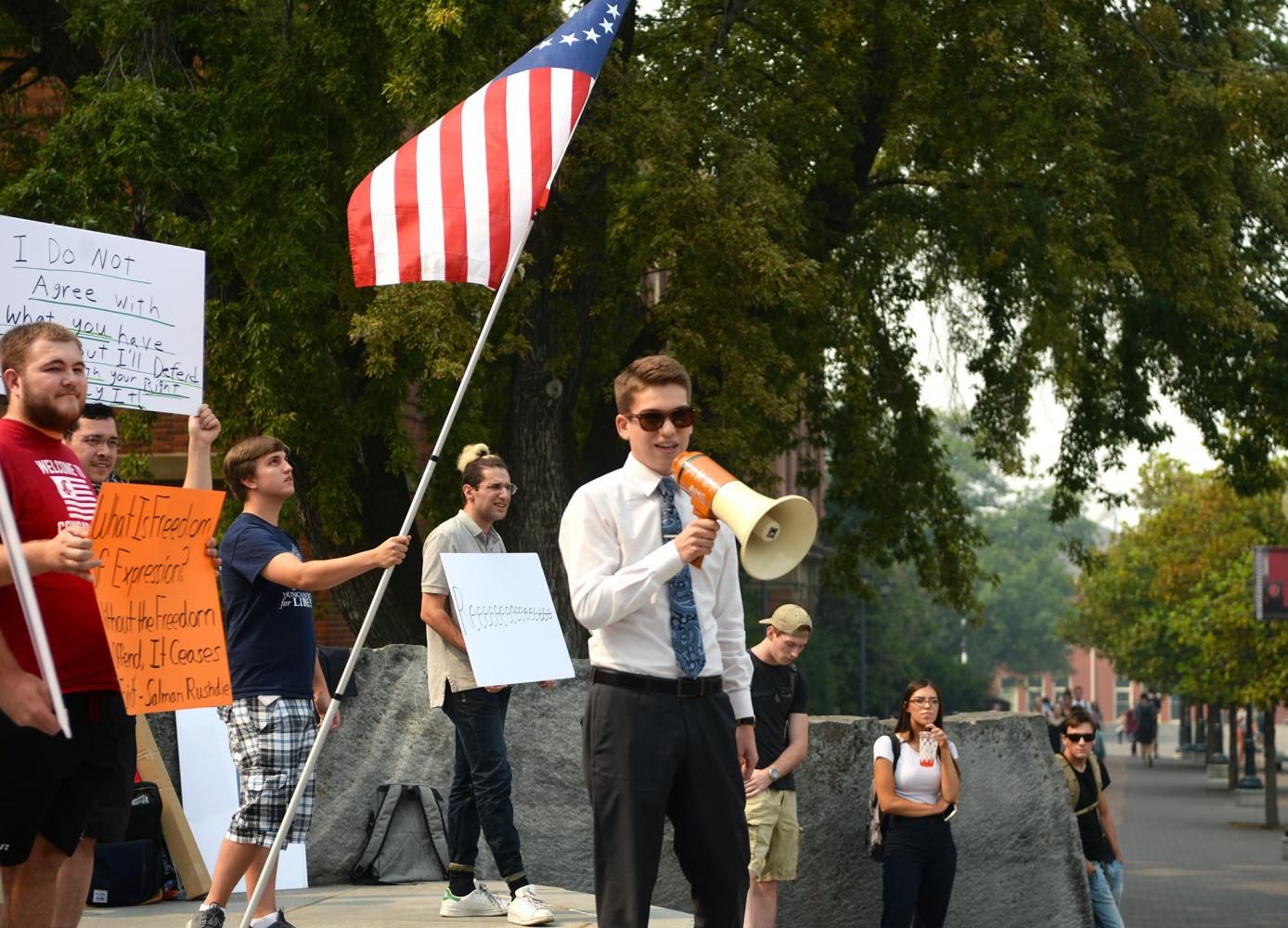Editorial board: Don’t outlaw hate speech, speak louder
The university cannot limit hate speech, but students can rise above
JONI COBARRUBIAS | Daily Evergreen File
Students had the opportunity to speak on whatever they wanted at the Free Speech Rally on Wednesday.
September 8, 2017
The First Amendment has been the subject of discussion across campus over the past year.
During the sit-in at the WSU French Administration building two weeks ago, students demanded that university administration create policy that would clearly define the boundary between free speech and hate speech.
The sit-in was in response to several incidents that students said made them feel that the WSU campus was not a safe place for minorities and that hate speech had been allowed to prosper.
In response to the sit-in, some students, including members of both the Young Americans for Liberty (YAL) and the College Republicans, held a rally Wednesday advocating for free speech. Noah White, YAL vice president, said during the rally that hate speech falls within free speech, and they cannot be separated.
The Daily Evergreen believes that although there are many instances of inflammatory rhetoric, all speech, unless it directly incites violence, ought to be protected. The First Amendment gives The Daily Evergreen, along with all journalists, the right to write and publish freely without fear of retribution from government.
The Daily Evergreen’s belief that hate speech is free speech should not be misconstrued to appear as if we believe offensive language or stances are appropriate. Any speech which demeans, belittles or separates any person or group of people should be condemned broadly. However, hate speech should not be dealt with by government — that is not its responsibility.
We also recognize that there is a fine line between hate speech and harassment. Harassment is a form of discrimination that violates the Civil Rights Act of 1964 and many others, according to the U.S. Equal Employment Opportunity Commission. If an individual believes they are being harassed, legal counsel should be involved, and WSU’s Office of Equal Opportunity can be used as a resource in finding that guidance.
But it is not the university’s responsibility to make legal decisions for individual cases of hate speech.
It should instead be dealt with by the people — those it affects, their allies and society as a whole. Do not respond to hate speech with violence. Overcome hate speech with an overwhelming degree of support and peaceful protest for those affected by it.
It’s true that most hate speech is spewed by a small minority of society. They are outliers, people misguided by misplaced values and outdated beliefs. They hide behind the First Amendment and attempt to spoil it. Do not allow such a small group to have such a large, disproportionate amount of power.
Instead, silence those who spew hate speech by speaking louder. It is a small group of people who subscribe to hateful beliefs, but there is also a majority of people who do not, and power comes in numbers.









